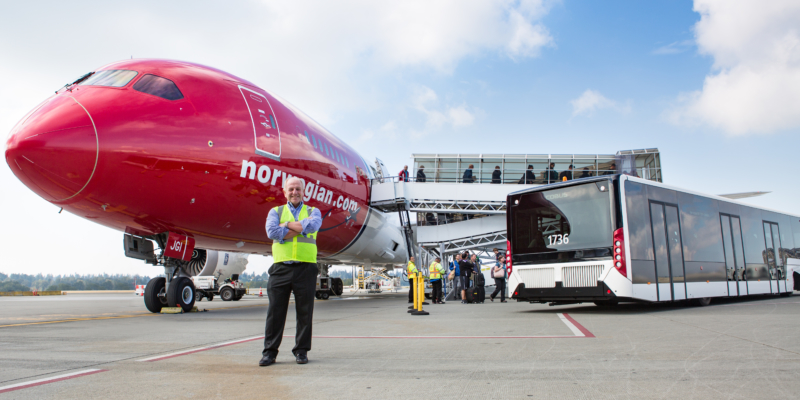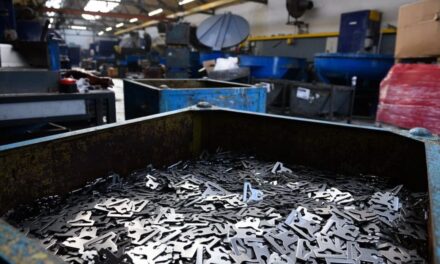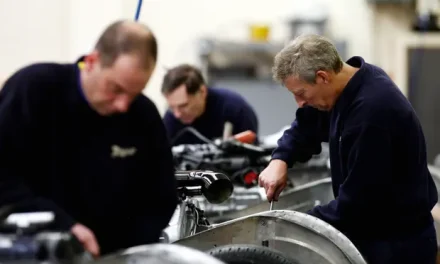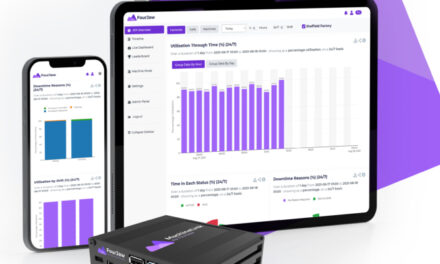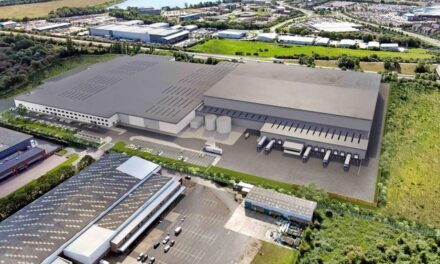An aviation specialist has netted more than £600,000 in R&D tax breaks after creating a world-first passenger ramp for aircraft, business tax specialist Catax can reveal.
Aviramp, based in Telford, Shrops, is an independent manufacturer of Ground Support Equipment (GSE) and has built a reputation for mobile floating walkways in markets all over the world.
However, the company spotted a need for a product that went further than traditional solutions.
One of the business’s key objectives was to create a ramp that everyone could use — including diabled passengers. These customers have historically been separated from friends and family, and forced to use a lift on wheels such as an Ambulift.
Aviramp wanted to offer Persons with Reduced Mobility (PRMs) and the airports that serve them a more comfortable and dignified way of boarding and disembarking aircraft — an all-inclusive step-free passenger experience. These innovations over three years have earned the company a total of £611,000 in R&D tax benefits from the government.
GSE for able-bodied passengers has traditionally consisted of steps that can be driven or pushed up to aeroplanes’ doors.
Aviramp’s big technological leap has been to develop mobile ramps, instead of steps, which shield passengers from the elements and operate under their own power. This is made possible by an array of solar panels mounted on the canopy, reducing the need for external power and making them more environmentally friendly.
The firm has also developed advanced docking platform door seals, like those seen on the jet bridges that passengers use when aircraft are parked next to terminal buildings. The main challenge here was to stop passengers getting wet when it was raining when variance in the ramp elevation would disrupt the way the seal fitted around the body of the aircraft.
This was never a problem encountered by aircraft steps, because their seals always remain at the same angle. Aviramp used motors and gas structs to create an adaptive system that produces a snug fit, whatever the height of the aircraft door. This work involved the development of sensors within the docking platform and seal, which prompt immediate adjustments in position and tell the operator when a perfect fit is achieved.
These ramps can even be driven remotely, as well as pushed by tender and ground staff. An operator on board the ramps can use an electric chest pack to manoeuvre the vehicle and control the speed more carefully as they near an aircraft.
Initial attempts to create solar-powered solutions proved difficult. Not only did these machines need to use considerable energy over extended periods, but generating sufficient power was not always possible in poor weather or at airports experiencing fewer hours of daylight. Available solar panels weren’t able to produce enough power.
Aviramp subsequently increased the number of panels on each ramp and began to test higher quality ‘MPPT solar controllers’. Also known as ‘solar regulators’, these devices sit between the panel and the battery. They control the charging process and ultimately improve battery performance. The team tested the battery performance at a real airfield in the north of Scotland where light is in shorter supply.
Poor weather continued to pose problems to the overall design of smaller, lighter ramps because shielding passengers from the elements also meant increasing the ‘sail effect’ in windy conditions, threatening to make the structures unstable. While exploring side venting that would allow the wind to pass through the frame of the ramp, the company’s engineers realised this ment they’d also need to reduce the weight of the roof, reducing the number of solar panels it could support. Vertical venting then had to be designed that would divert wind away from the ramp to prevent it blowing into the passengers, and the canopy had to be redesigned to maintain strength.
R&D tax relief was introduced by the government in 2000 to incentivise innovation, and results in either a reduction in a limited company’s corporation tax bill or a cash lump sum. Many firms don’t realise the work they do qualifies as R&D, which is defined as any work that seeks to resolve a scientific or technological uncertainty, whether that’s a new process, product or service. Crucially, R&D work does not need to have been successful to qualify and claims can be made up to two years beyond the end of the tax year in which the work took place.
Aviramp founder and CEO Graham Corfield commented:
“We’ve ploughed this money straight back into the business. It has been absolutely invaluable.
Kully Nijjar, Associate Director of specialist R&D tax consultancy Catax, said:
“Aviramp is a company that has worked tremendously hard to create a world-beating solution that doesn’t split loved ones up at the departure gate. To put it in perspective, its ramps add to the enjoyment and experiences of millions of people every year.
“Its ramps are being adopted by airports around the world and giving them the chance to offer a more dignified service to those passengers with less mobility. This a perfect example of how the R&D tax relief regime is supporting the development of new products that may not otherwise have hit the market so quickly, if at all.”
To view the original article, click here.

